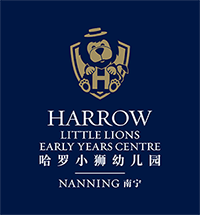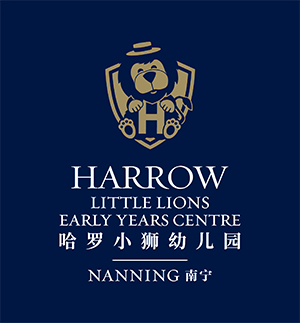As the winter softened into spring, it’s a new term at Harrow Little Lions Early Years Centre.
In a few months’ time, another group of young lions will be leaving kindergarten and moving on to a full time student career.
From little baby to primary school student,
From a carefree child to a student with schoolwork to do,
How do students and parents cope with this transition?
And how does the school help them to get through this period successfully?
Harrow Nanning held a detailed explanation session for K3 parents of Harrow Lions on the K3-G1 transition from kindergarten to primary school to answer questions and help parents on their children’s educational journey.
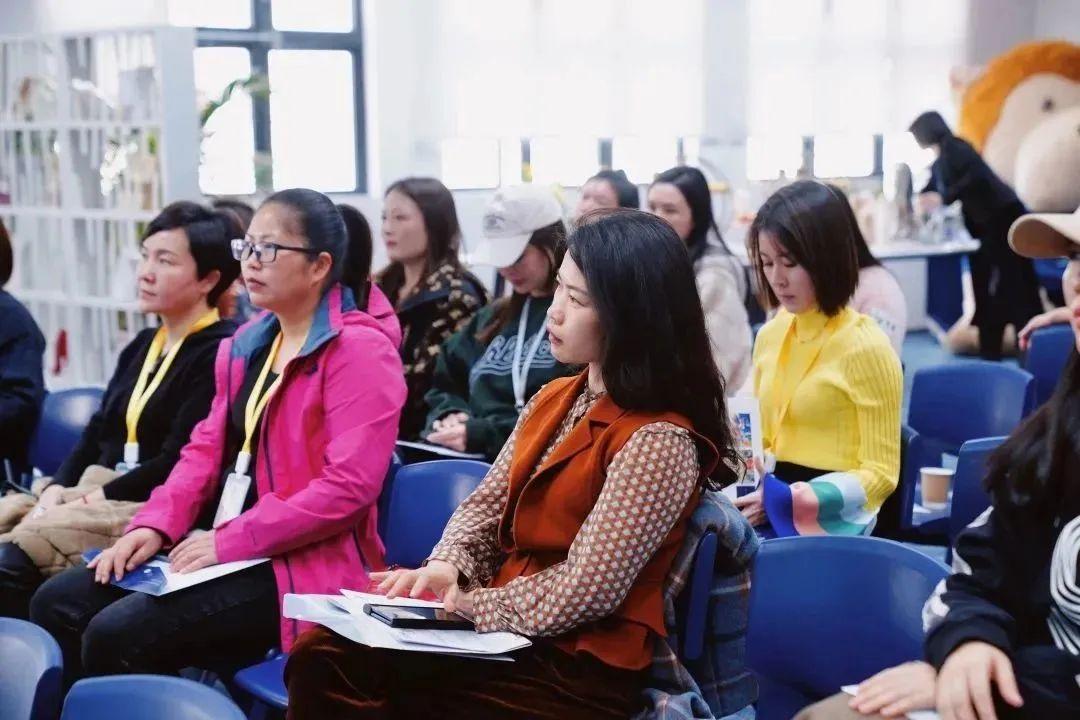
Q1
Will my child not adapt to a bilingual primary school environment?
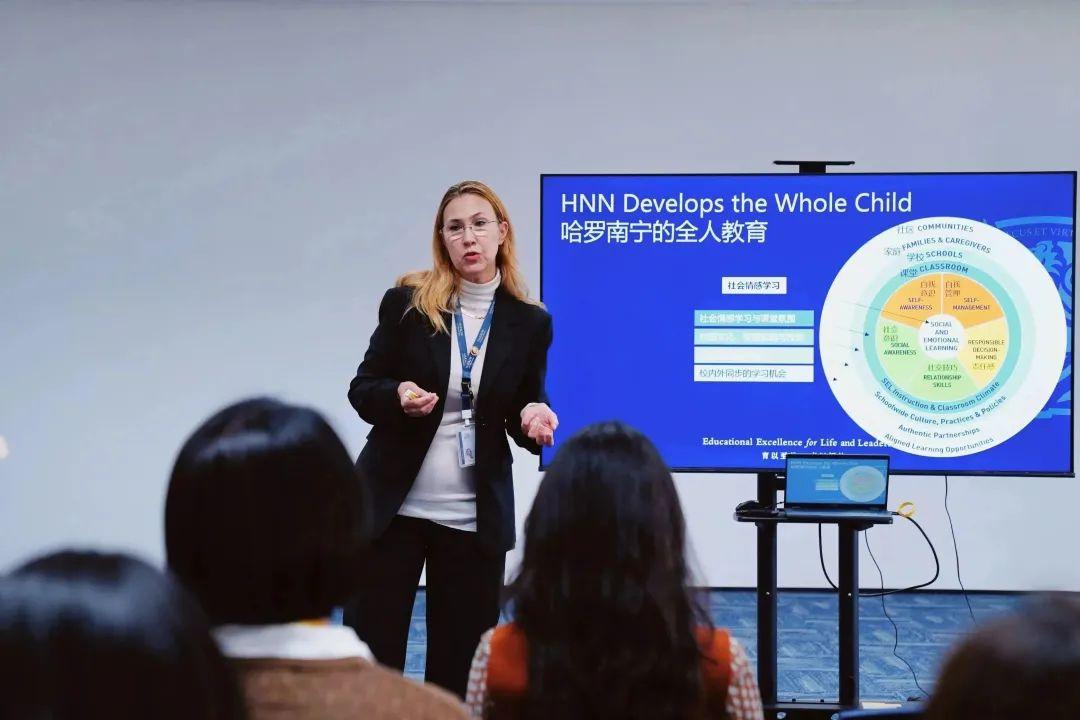
-Ms Eldars was introducing the teaching methods of Lower School-
From Harrow Little Lions Early Years Centre to Harrow Innovation Leadership Academy Nanning, children receive a consistent bilingual education model within the Harrow system, led by the philosophy of whole-person education. The children have adapted to the bilingual mode of teaching at Harrow Little Lions Early Years Centre. In class, the main class teacher leads the children to explore in English, enlighten their English thinking, and immerse them in the English atmosphere since childhood, so that their English ability has been cultivated and improved in the kindergarten stage. Like Harrow Innovation Leadership Academy Nanning, Harrow Little Lions Early Years Centre also has an excellent bilingual class teacher who acts as a bridge between the children’s learning and even their emotions. These experiences enable the children to overcome their fear of English from their kindergarten years, to better adapt to the bilingual mode of teaching and to better connect with Harrow Innovation Leadership Academy phase of the curriculum.
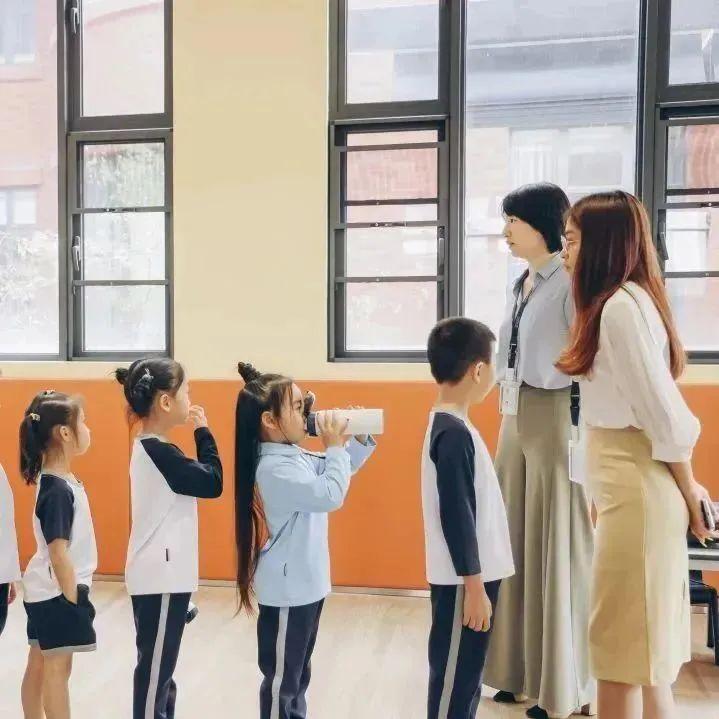
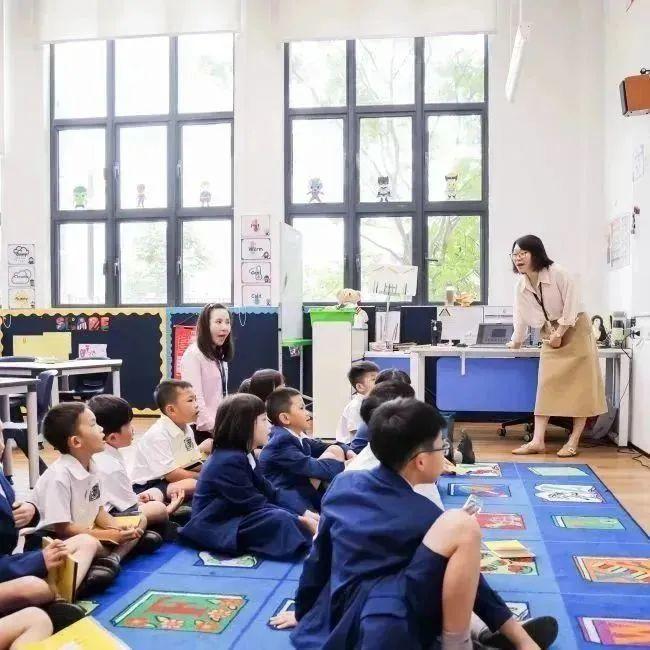
From the time the children enter the first year of primary school, we have a higher expectation of their language skills. In the early grades, our school has a regular morning ‘Phonics’ session to enable children to master the sounds of English as if they were native speakers, so that they can read, speak, listen and write naturally and gradually improve their English skills. To facilitate dynamic assessment of students’ English language skills, our school holds regular GSE English language proficiency tests. This facilitates targeted language improvement and allows children to think, listen, read and write like native speakers from Year 1 onwards.
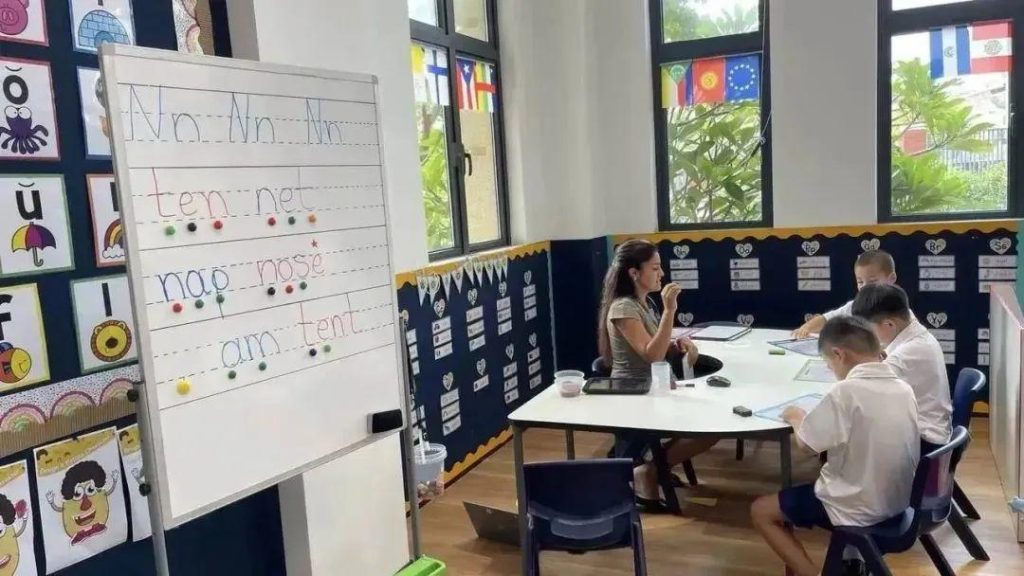
Reading is the foundation for learning a language. The school places great importance on improving students’ reading skills and promotes reading at all times, both at school and at home. The school uses books from the Oxford Tree Reading Programme, which the children can take home and read with their parents after reading at school. Using the school’s extensive library resources and weekly book time, a home-school reading environment can be created. In addition, the intelligent online reading platforms MyOn, Knowledge Planet and Oxford Owl platforms used by schools can also develop reading plans and recommend books based on the child’s current stage of English language ability to better enhance the student’s English reading level.
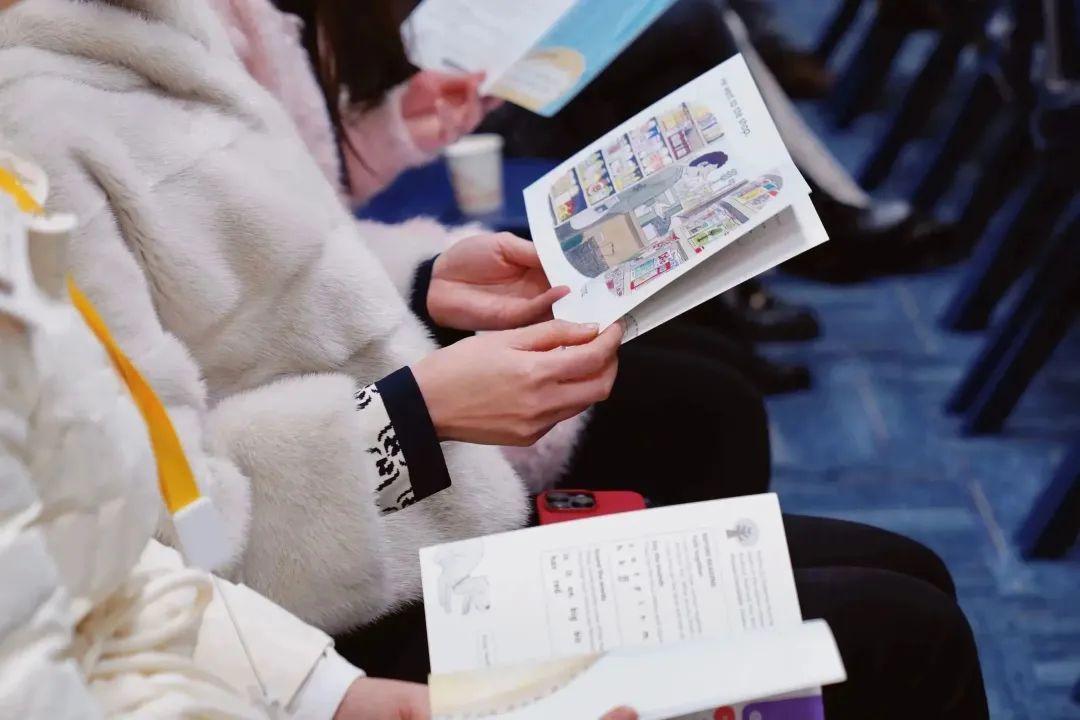
-Parents were reading the books provided by school-
Q2
Are children under a lot of pressure when they reach primary school with their schoolwork? Will there be a lot of homework?
In fact, when children enter primary school, the pressure of schoolwork does increase compared to the kindergarten years when most of the time was spent playing. In the lower grades, the school offers a wide range of different courses in languages, English, book reading, mathematics, science, calligraphy, computers, physical education, ethics, art, physical and mental health, leadership and community service, music, as well as enrichment residential activities and CCA after-school co-curricular programmes. Parents need to be particularly patient with children as they enter primary school, especially during the first 1-3 weeks, and work with the school to reassure and encourage them to enter primary school.
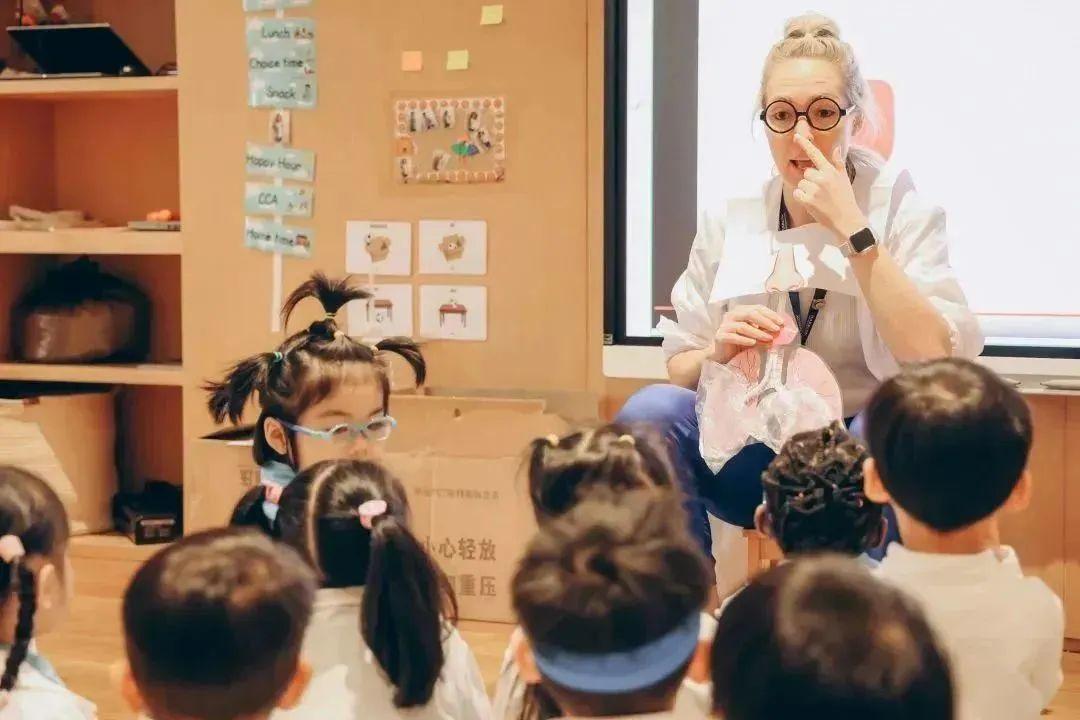
Both teachers and bilingual head teachers have rich teaching experience, from the setting of curriculum content to the arrangement of teaching environment, from strict and consistent schedule management to the preparation of rich teaching materials.The lower grade department also uses various experimental teaching activities to guide children to actively participate in the classroom. Different from “cramming” teaching, it uses small-class, gamified, immersive, interesting and participatory teaching activities to positively arouse children’s positive thinking and positively motivate students, so as to cultivate children’s critical thinking from an early age.
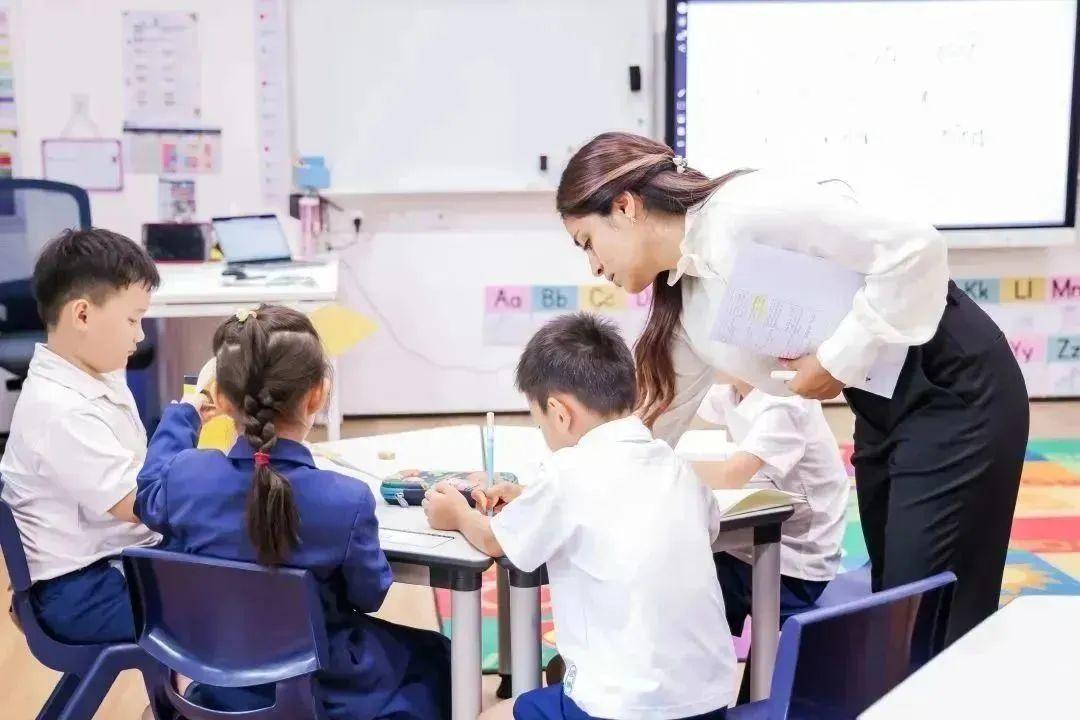
Homework is an extension of school teaching, and schools don’t want children to be burdened with too much homework. In the lower grades, more online activities are adopted in grades 1 and 2. After grade 3, teachers will assign homework of no more than 60 minutes, covering Chinese, English, math, science and interdisciplinary projects, with the purpose of practicing and consolidating what they have learned today, so that parents can also participate in their children’s learning.
Q3
Do children’s Chinese language skills deteriorate?
How do children learn languages in primary school?
Mixed Chinese and western is important. The study of Chinese occupies a very important place at Harrow Innovation Leadership Academy Nanning. In addition to Chinese courses, the lower grades, including calligraphy, ideology and moral courses, follow the national nine-year compulsory education syllabus, and are combined with the expanded, exploratory and integrated Chinese courses with moral characteristics, to consolidate students’ mother tongue foundation.
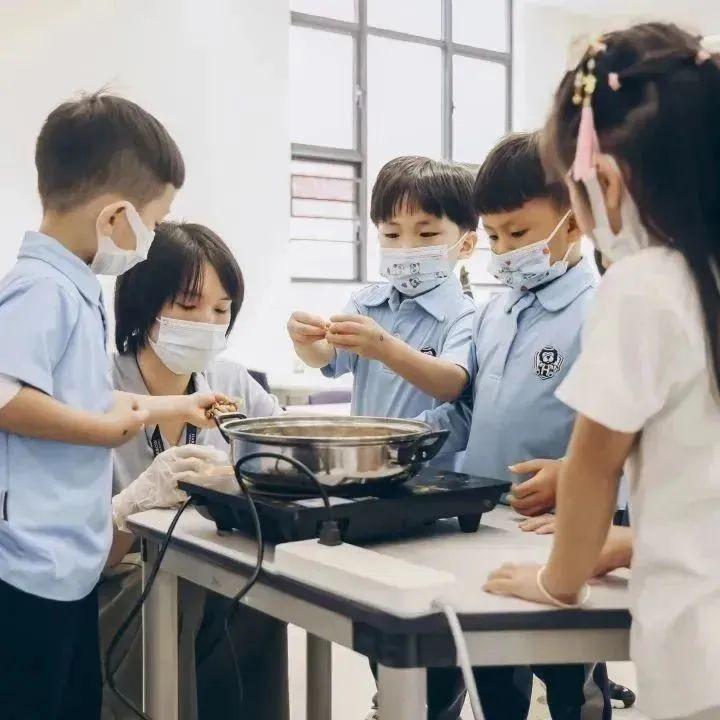
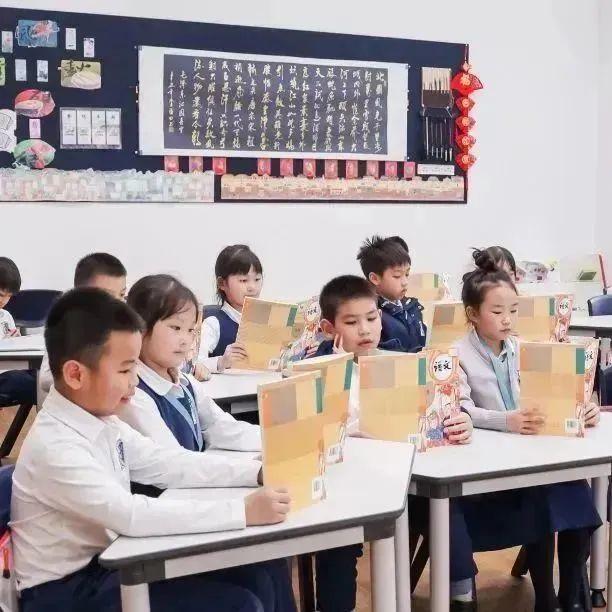
In the perspective of international education, the school is carrying out various Chinese curriculum design. In the Chinese class, students can not only learn traditional culture and poetry, but also carry out exploration courses on traditional festivals under the guidance of teachers, participate in Chinese Week, research studies and various festival competitions, and experience the teaching atmosphere of the whole Chinese language. The school attaches great importance to the writing training of children. There are special calligraphy teachers and calligraphy classes to learn both soft and hard pens to lay a solid foundation for writing.
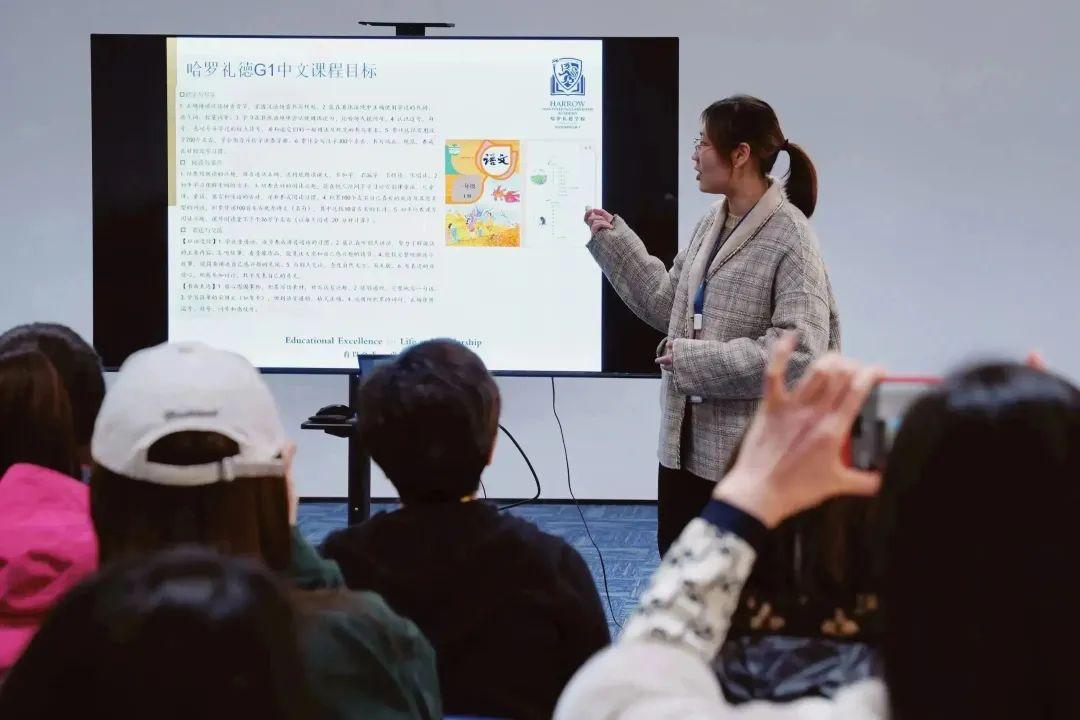
-Chinese teacher was introducing the HILA Chinese lessons –
In addition, Chinese is also integrated with other disciplines. For example, when learning the theme of wild animals, children can not only read the articles describing animals in Chinese class, but also know the words of wild animals in English and science class and understand their living habits. Under such an environment, children’s bilingual ability has been steadily developing. “Knowledge and culture go hand in hand, study and morality go hand in hand”.
Seeing a small seedling grow into a huge tree
requires a lot of effort from the school to the parents
We rejoice in the progress of our children with every footprint
We also worry about every little setback they encounter
Our school is willing to work with parents to be a good protector of the children’s development.
Communication is not only between students and teachers,
but also between home and school.
More parents’ afternoon tea will be held regularly on campus
and parents are welcome to come to school to discuss with teachers!

